Realizing Children’s Rights in Niger
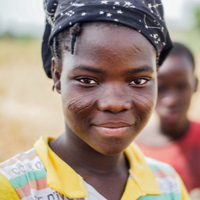
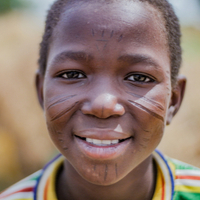
Niger (also called the Republic of Niger) is a vast and arid country where living conditions, particularly those of children, are very difficult. Combined with poverty, children not being able to access adequate health care, education, and sanitation pose great challenges and increase the risk of child trafficking, abuse, and prostitution. Thus, the CRC has stated that it is extremely concerned and has called on the country to take the necessary measures to permit children from Niger to fully enjoy their rights.

Children’s Rights Index: 4,61 / 10
Black level: Very serious situation
Population: 23.3 million
Pop. ages 0-14: 49.8%
Life expectancy: 62 years
Under-5 mortality rate: 80.4 ‰
Niger at a glance
Niger, also known as the Republic of Niger is a landlocked country in West Africa. A link between North Africa and sub-Saharan Africa, Niger is a vast and arid country. More than 80 percent of its land is covered by the Saharan desert. Additionally, the non-desert land is threatened by droughts and desertification.
Its population is approximately 23 million (World Bank, 2019). The country remains to have a large young population with 58.2 percent under the age of 18 (UNICEF, n.d.). It is also home to a wide variety of ethnic groups composed mainly of the Hausa and partly of groups such as the Zarma-Songhai, the Tuareg, the Fulani, and the Kanuri.
Migrations within towns and cities are popular with changing seasons, however, in recent years nomads tend to move towards the sedentary lifestyle and focus more on working in agriculture. The country’s economy also largely relies on subsistence agriculture where farmers grow crops large enough to only satisfy their local requirements and own needs. As for resources, Niger has one of the most important uranium reserves in the world which helps contribute to the economy.
The military coup in 2010 allowed the country to go into a democratic and multi-party state. However, throughout the years, it has been consistently ranked very low in the UN’s Human Development Index (HDI): 188th (2015), 189th (2018, 2019) out of 189 countries (UNDP, 2019). It is a slowly developing country; however, it faces serious challenges because of its geological position and inefficient agriculture. These combined with high birth rates at low ages, poor education, infrastructure, and health care cause heavy strains on the country and its people. These have had bearing on the children of Niger. As a result, certain children throughout the country are unable to enjoy all of the rights proclaimed by the International Convention of Children’s Rights.
Status of children rights[1]
The population of Niger is mostly children with a median age of only 14.8 years which is significantly low compared to the world (CIA World Factbook, 2020). With almost half of Nigeriens living in poverty, children are at risk and have few opportunities to get out of this impoverished state. 80 percent of the population lives in rural areas making it even harder to access certain facilities like clean water, health care, and education (UNICEF, n.d.). Rampant poverty, obliges many parents to restrict their children from attending school for them to work full time and contribute financially to the family or marry at a very young age which are both dangerous for the child.
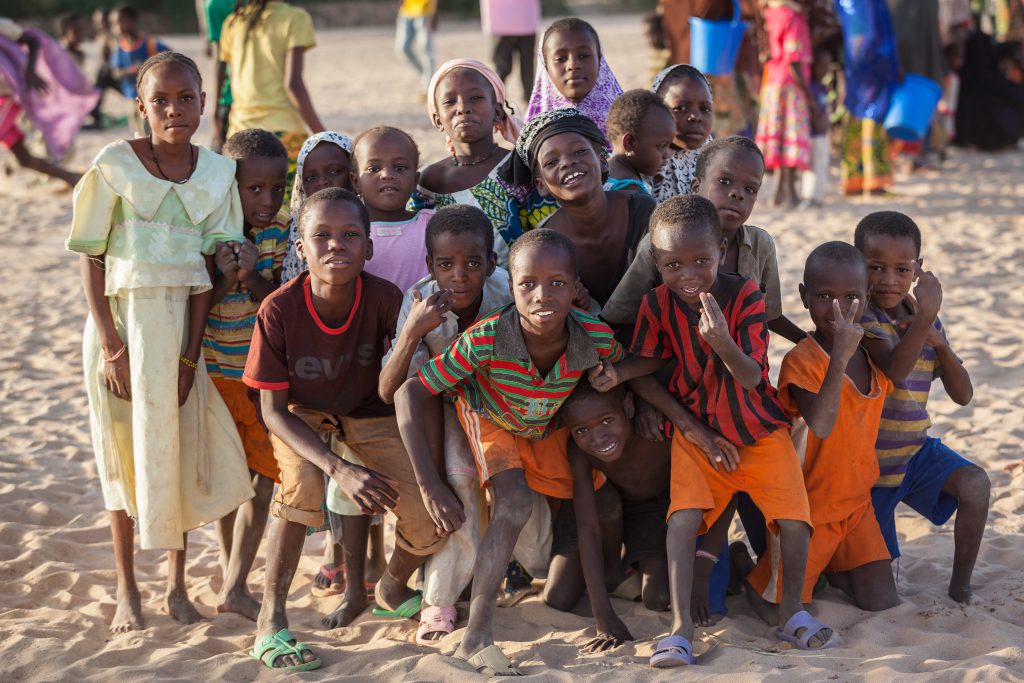
The country has made efforts in the past years to make children’s lives more comfortable, however, these efforts have not proven to significantly improve the status of children. Making education free and compulsory until the age of 16, building new and improved classrooms, making health care free for children under 5, addressing violence against women with the Spotlight Initiative, and the National Strategic Plan to End Child Marriages by 2018 were some of these efforts.
However, although these helped improve issues they were no solution to the problems. Also, protecting the children when it came to armed conflicts and emergencies still remained an important challenge considering the acts of terrorism and gang violence that still persist in Niger. Furthermore, there are gaps and insufficiencies in policy frameworks, implementation of programs, and mindset that must be improved to correctly address the needs of the children in Niger and provide them an opportunity to benefit from all of their rights.
Child-sensitive social protection
Social protection is essential for preventing and reducing poverty for children and families, for addressing inequalities, and for realizing children’s rights. In addition, it is essential that social protection programs respond to children’s vulnerabilities by optimizing positive effects on children and minimizing potential adverse consequences. Given its positive contribution to reducing poverty, vulnerability, and risk social protection has gained interest in the last years.
Especially if child-sensitive social protection is put into action correctly, it has the opportunity to address chronic poverty, social exclusion, and external shocks which can irreversibly affect children. Social protection programs are established in Niger but there are few that focus on children’s rights and the wide range of vulnerabilities children face, especially when it is in such a politically fragile state. Starting from birth most children of Niger are at a disadvantage in terms of protection: the protective measures that birth registration provides including governmental help and recognition are only enjoyed by 6 out of 10 children (UNICEF, n.d.).
One of the social protection programs that also help children is a feeding program which is one of Africa’s largest feeding programs that administer approximately 800 feeding centres and serves 400,000 children yearly (Devereux and Cipryk, 2009). Additionally, Niger benefits from regional anti-trafficking treaties like the ‘Multilateral Cooperation Agreement to Combat Child Trafficking in West Africa’. These also cover child trafficking cases, however, are not fully effective in eliminating child trafficking as it is one of the most rooted problems that children face in Niger.
As mentioned, although some forms and policies of social protection in Niger are partially child-sensitive, it is still inadequate for their needs. It is evident that when such programs are being implemented, children significantly benefit from them. Thus, it is important that policies, legislation, and regulations effectively consider the viewpoint of children and their caregivers so that children’s rights are adequately met.
Addressing the needs of children
Right to health
Malnutrition remains a serious problem throughout Niger’s rural regions and in its urban zones. Even with food programs in place, most families simply do not have the means to obtain suitable nourishment. The lack of sufficient nourishment leads to dietary deficiencies and growth problems. Nigerien children effectively suffer from micro-nutritional deficiencies and from disorders stemming from a lack of iodine. These nutritional deficiencies strongly aggravate the infant mortality rate which is already extremely high (46.7 per 1000 live births) notably on account of the strong prevalence of HIV/AIDS (UNICEF, n.d.).
From birth, most children are at a disadvantage because only less than half of the children of Niger live close to an accessible health facility. Not only does this risk babies from getting the immediate care they need, it is also a significant issue for maternal health leading to high maternal mortality rates.
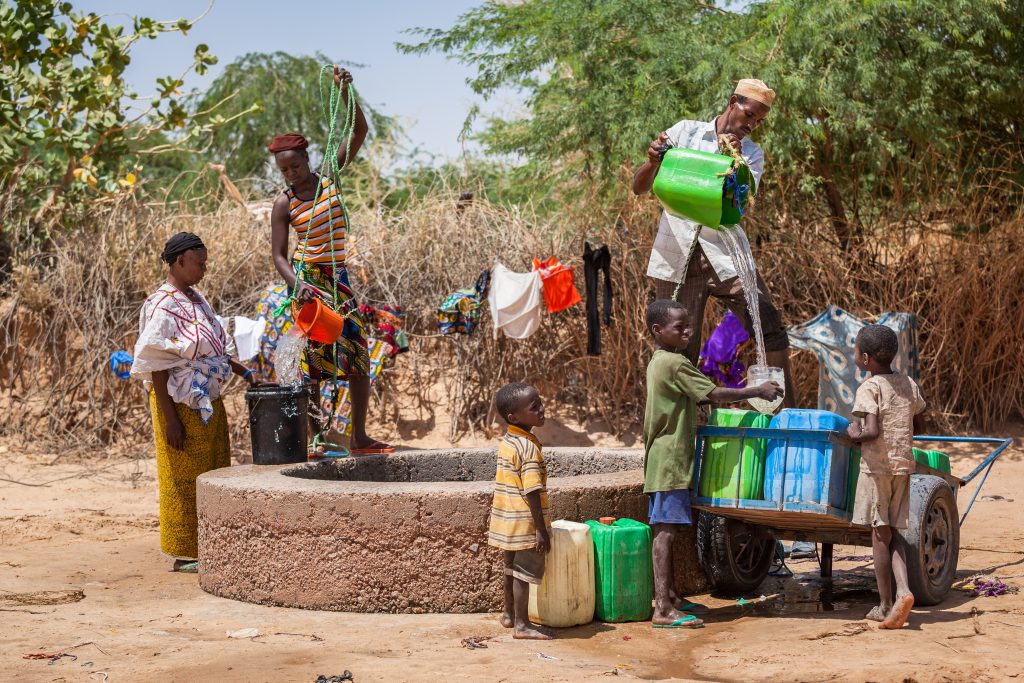
Waterborne diseases likewise remain a fundamental problem. In effect, owing to the scarcity of drinkable water and an inadequate water purification system, a great many Nigerien children routinely suffer from diarrhoea. And more often than not, proper medical treatment is difficult to come by, owing to the government’s failure to provide the financial resources needed to recruit personnel, buy equipment, improve services, etc. (IFRC, 2005).
Furthermore, with regard to vaccinations, great disparities exist: children in rural regions receive vaccines less frequently than do those living in urban areas. Moreover, due to a lack of information pertaining to the utility of vaccines, a large percentage of children do not benefit from them; this remains evidently very problematic.
Right to identity
The registering of births is obligatory in Niger. However, despite campaigns aimed at raising public awareness, the population in rural regions is unaware that failure to register births with the appropriate authorities is subject to a fine. Furthermore, these communities are unaware of how important it is to have official evidence of identification.
In effect, children who lack the appropriate official papers are not recognized as members of society and cannot exercise their rights. Consequently, they do not exist in the eyes of society. In addition, children who are not registered, are most likely not protected from abuse, be it forced labour, drug trafficking, child marriage, prostitution, or other forms of sex trade, etc. (Wodon and Yedan, 2019).
Although there are field actors in place that work to build a bridge between the authorities and the families to help children get the correct birth registration, it is not always the case (UNICEF, 2019). Thus, it is imperative that the government of Niger continue to actively work to make funds available for campaigns aimed at raising awareness on this issue.
Right to education
Education is free and compulsory for 8 years in Niger making it a national priority; nevertheless, it leaves much to be desired. Almost only 25 percent of the children attend primary school and even fewer attend secondary school; and girls, for cultural reasons, often attend school even less than boys.
The quality of education is not good, since the system lacks both context and fixed objectives. Plus, infrastructure is poor: more often than not, there is an absence of sanitary facilities, a lack of ventilation and light, etc. Additionally, language is a significant barrier in standardized education: while the education system is in French, many children predominantly use indigenous languages, which makes it difficult for them to access useful education (CIA, 2000).
Finally, the population does not understand how important education is. Poor communities prefer that their children find jobs rather than go to school. Worse still, the government would like to privatize the school system—which means that parents will not always be able to afford to finance their children’s schooling (UNICEF, 2012).
Right to non-discrimination
In certain regions of Niger, great disparities persist, notably at the level of access to education and healthcare. In urban areas, the education rate is higher than it is in rural and nomadic regions. Furthermore, more boys attend school than girls. This is because too many families are reticent about sending their daughters to school. The general feeling is that education does not contribute to the positive development of girls, but rather to their depravity.
Additionally, Niger is one of the 24 countries that do not have a policy in order to protect pregnant girls’ rights to receive an education (HRW, 2021). The discrimination that most girls and minorities go through in Niger prevents them from accessing the full benefits that the country can provide including health care and education.
Risk factors → Country-specific challenges
Child labour
Owing to extreme poverty, families are often obliged to make their children work. They generally find employment in the agricultural domain—which is the predominant labour sector in Niger. Besides this field, children also work in mining and hereditary slavery which are both very dangerous and some of the worst forms of child labour.
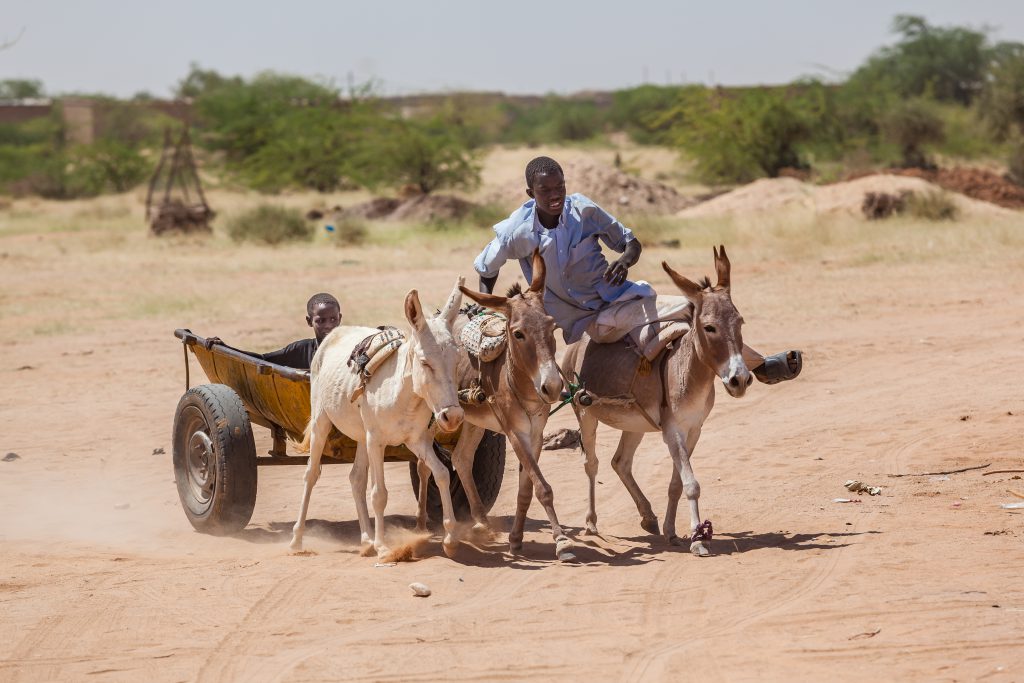
Unfortunately, the minimum age for working does not apply to children who work either unpaid or non-contracted. These children grow up in very miserable conditions: long working hours, low-to-no wages, no food, no education. Furthermore, they run the risk of becoming the victims of prostitution, discrimination, abuse, etc. However, advancements have been made: in 2019, Niger passed legislation to establish Child Protection Committees in communes to educate people on child rights and especially child labour issues (Bureau of International Labor Affairs, 2019).
Child trafficking
Unfortunately, Niger is a transit and destination country for child trafficking. Children are being trafficked for forced labour and forced prostitution in terrible conditions. They are even sent to countries like Nigeria or Mali for forced begging and labour. Also, there are many cases of girls being trafficked and forced into involuntary domestic servitude. (Julien, 2018)
Child trafficking is still a major problem in Niger, however, the government makes efforts to eliminate it such as the ‘National Action Plan to Combat Trafficking in Persons’ (2019-2023) which aims to improve legal frameworks, implement laws, and provide protection for the victims of child trafficking. Additionally, the EU-funded, ‘Global Action Against Trafficking in Persons and the Smuggling of Migrants’ project gives seminars and increasing awareness on combating trafficking.
Programs like these help to prevent child trafficking cases and care for victims of it. However, they are not adequate and large enough to eliminate child trafficking in Niger. The government, still, must work on implementing these programs and laws that concern trafficking to the fullest to ensure a better environment for children. (U.S. Department of State, 2010)
Sexual exploitation
Owing to the extreme poverty which afflicts Niger, minors often end up as delinquents as well as involved in prostitution. The latter practice essentially concerns girls. Many young girls are forced to sell their bodies in order to support their needs. In most cases, they do not have recourse to contraceptives, because such things are viewed by Nigerien society as an invitation to debauchery (Nossiter, 2014). Thus, unwanted pregnancies have become frequent and serve to increase the number of infanticides.
Niger has taken steps to resolve the problem. It has, for example, outlined a plan of action which stresses the importance of support, development, and protection, and in which conscious-raising sessions play a prominent role. However, the murder rate remains disturbingly high (OHCHR, 2018).
Child abuse
Although corporal punishment is forbidden within educational establishments, it persists at the heart of the family. In effect, this practice remains current: children are submitted to different forms of violence and neglect. In fact, at least 80 percent of Nigerien children have received violent acts as forms of discipline (UNICEF, 2018). Denunciation of physical violence towards children is perceived to be an unwarranted intrusion into the private lives of families—many of which take the view that corporal punishment permits them to discipline their children.
Child marriage
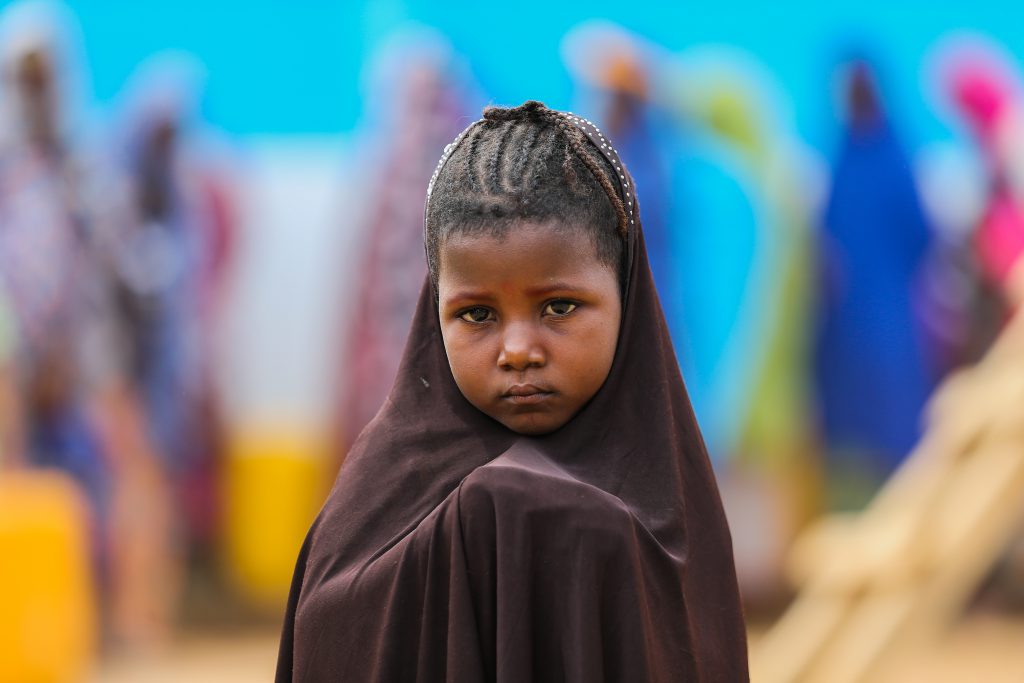
Marriage involving young girls is still practiced in Niger. In fact, Niger has the highest child marriage rates in the world (UNICEF, 2021). 76 percent of all girls in Niger are married before they turn 18 and 28 percent before they are 15 years old (Haro, 2020). Child marriage has a negative effect on their health, their development, and their ability to fully exercise their rights. Being married so early in life hampers their ability to socially interact with others since they are more or less forced to abandon their education. Furthermore, they run the risk of premature births which can have a dangerous effect on both their own health and the health of their infant.
Female genital mutilation
Female genital mutilation is still practiced in certain regions of Niger. It is especially prevalent in the Tillabéri and Diffa regions of Niger. The ethnic groups, the Fula, Gurma, Ousta Arab, Baggāra, and Toubou have the highest FGM and cutting prevalence.
The precariousness and lack of hygiene with which these excisions are practiced often lead to serious consequences for the health of young girls. Infections, haemorrhages, and other problems are often a direct result of this particular operation. In cases where females do not get FGM, it is also common that they are excluded from their surroundings, which only makes the taboo and stigma stronger. Although Niger has passed legislation on this issue in 2006, and ratified conventions in the years before, it still fails to control and eliminate FGM from the country as a whole. (Rights in Exile Programme, n.d.)
Written by Yagmur Ozturk
Last updated on 19 July 2021
References:
Brachet, Julien (2018). “Manufacturing Smugglers: From Irregular to Clandestine Mobility in the Sahara'”. The Annals of the American Academy of Political and Social Science. 676 (1): 16–35. doi:10.1177/0002716217744529.
Devereux, S., and Cipryk, R. (2009). ‘Social Protection in Sub-Saharan Africa: A Regional Review’. Brighton: Institute of Development Studies, University of Sussex.
“Niger”. (2010, June 14). Trafficking in Persons Report 2010. U.S. Department of State.
UNICEF. (2012). Education. Retrieved on 19 July 2021, from https://www.unicef.org/niger/education.
[1] This article by no means purports to give a full or representative account of children’s rights in Niger; indeed, one of the many challenges is the scant updated information on the children in Niger, some of which are unreliable, not representative, outdated, or simply non-existent.

